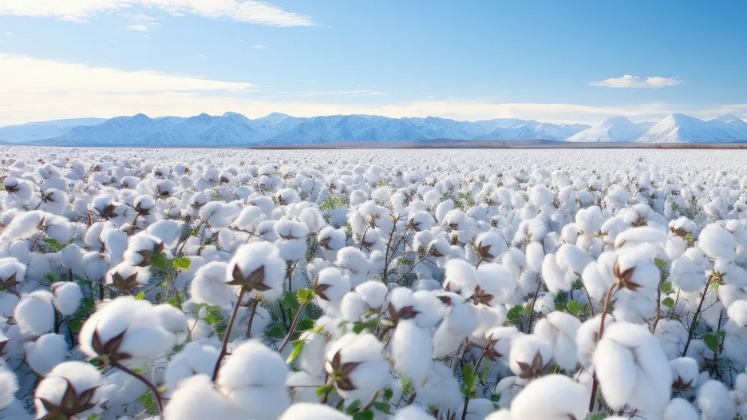
Follow WOWNEWS 24x7 on:

India’s textile sector is stitching together a short-term revival after the government’s surprise move to temporarily scrap the 11 percent import duty on raw cotton. The decision, effective from August 19 to September 30, has sent ripples across the stock market and trade corridors, offering a dual benefit: easing raw material costs and signaling diplomatic flexibility amid escalating trade tensions with the United States.
1. Market Momentum: Textile Stocks in Focus
Shares of Gokaldas Exports, KPR Mills, Welspun Living, and Ambika Cotton Mills rallied sharply on August 19, reflecting investor optimism over improved input economics and export competitiveness.
Analysts expect the duty waiver to boost margins across the textile value chain, including yarn, fabric, garments, and home textiles.
The timing aligns with the upcoming festive season, when demand typically spikes, amplifying the impact of lower cotton costs.
2. Policy Snapshot: What the Exemption Covers
The Finance Ministry’s notification, issued via the Central Board of Indirect Taxes and Customs, removes both the basic customs duty and the Agriculture Infrastructure and Development Cess on raw cotton imports.
The exemption applies to all imports under heading 5201, covering raw cotton varieties not widely grown in India, such as long-staple and extra-long-staple cotton from the US, Brazil, Egypt, and select African nations.
3. Strategic Context: Trade Diplomacy and Tariff Pressures
The move comes as India faces a steep 50 percent tariff on textile exports to the US, comprising an existing 25 percent levy and an additional 25 percent penalty linked to India’s oil trade with Russia.
Compared to Bangladesh and Vietnam (20 percent tariffs) and China (30 percent), India’s exports are at a competitive disadvantage, prompting American retailers to pause orders or seek alternate sourcing.
The exemption is seen as a calibrated goodwill gesture to Washington, potentially paving the way for broader tariff negotiations.
4. Industry Response: Relief and Caution
The Confederation of Indian Textile Industry (CITI), which had long lobbied for the duty removal, welcomed the move as a step toward aligning domestic cotton prices with global benchmarks.
Exporters, however, remain cautious. Many have halted shipments or are fulfilling orders at a loss, while retail giants like Walmart, Target, Amazon, and H&M have asked Indian suppliers to delay consignments pending tariff clarity.
Some manufacturers are exploring overseas production options to offset the impact, posing a challenge to India’s Make in India initiative.
5. Economic Implications: Short-Term Gains, Long-Term Uncertainty
The exemption is expected to cool domestic cotton prices, which have been volatile due to supply constraints and global demand shifts.
While the relief is temporary, industry leaders are hopeful it will be extended beyond September, especially as India targets textile exports of 100 billion dollars by 2030.
The short exemption window also allows the government to retain leverage in ongoing trade talks, balancing domestic sensitivities with international diplomacy.
6. Forward Outlook: What to Watch
Whether the exemption leads to a sustained uptick in exports or merely cushions short-term losses will depend on how trade negotiations evolve.
The US team’s cancellation of the sixth round of bilateral talks, originally scheduled for August 25, adds uncertainty to the diplomatic timeline.
For now, the textile sector is riding a wave of optimism, but the real test lies in converting this policy breather into structural resilience.
Sources: The Hindu Business Line, Business Standard, CNBC-TV18, Mint, MSN India, The Straits Times, Livemint.


